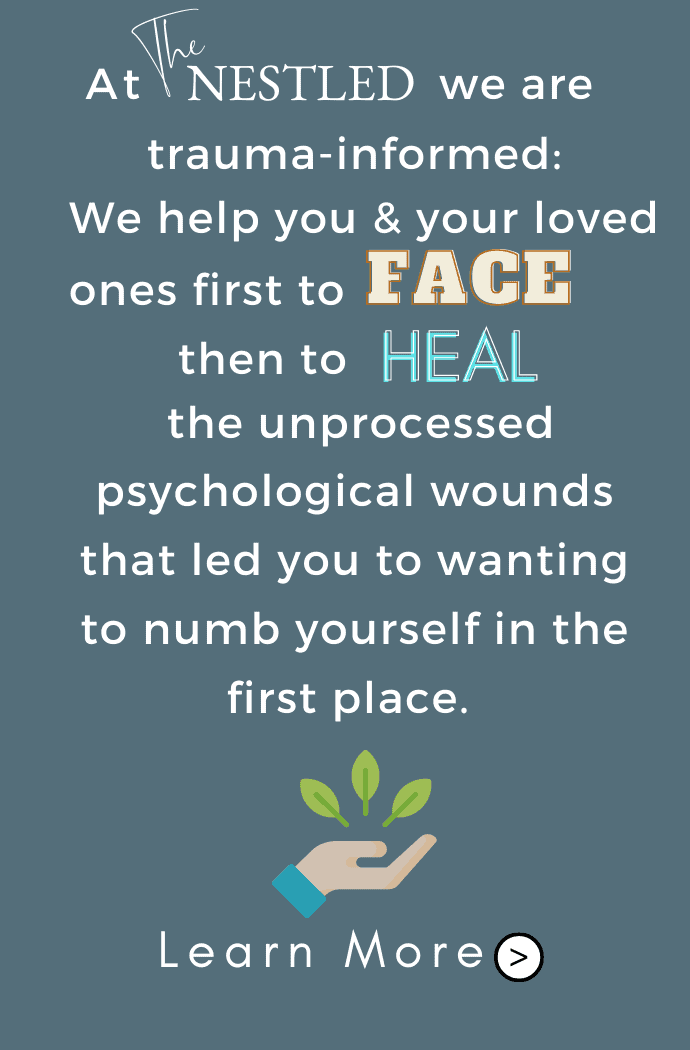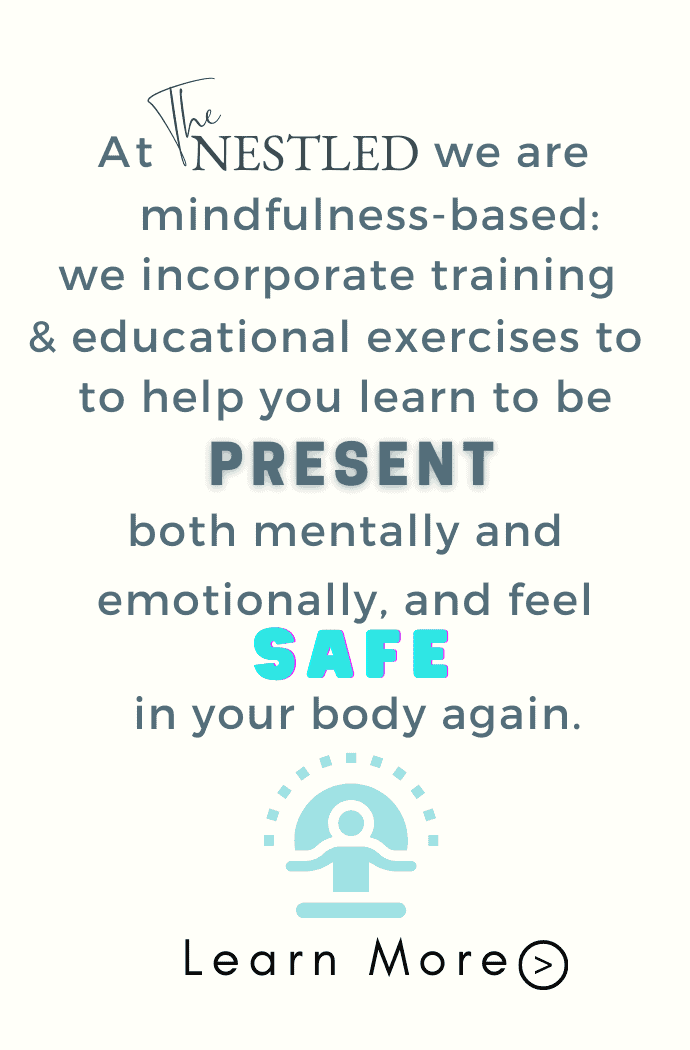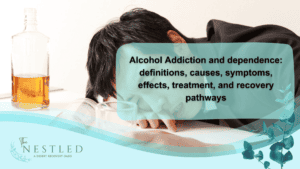Key Takeaway:
- There are three main treatment modalities of addiction: behavioral therapies, medications, and alternative therapies. Each modality has its own strengths and weaknesses and may be more effective for different individuals.
- Behavioral therapies, such as Cognitive Behavioral Therapy (CBT), Dialectical Behavioral Therapy (DBT), and Motivational Interviewing (MI), aim to change behaviors and thought patterns related to addiction. These therapies can be effective for individuals struggling with a variety of addictions.
- Medications, such as Opioid Replacement Therapy (ORT), Antidepressants, and Antipsychotics, can be used to manage withdrawal symptoms and address co-occurring disorders. These medications are often used in combination with behavioral therapies for optimal results.
- Alternative therapies, such as Acupuncture, Yoga, and Meditation, can complement traditional treatment modalities and provide additional support for individuals in recovery. These therapies focus on overall wellness and can help individuals manage stress and cravings.
- Aftercare is an important component of addiction treatment and focuses on maintaining sobriety and preventing relapse. Support groups, continuing care, and relapse prevention strategies can all be effective in supporting long-term recovery.
Struggling with addiction? You are not alone. It is important to understand the various modalities of addiction treatment so you can find the best fit for you. Here’s a breakdown of the three main interventions for addiction recovery.
What Are the Three Main Treatment Modalities of Addiction? – An Overview of Addiction Treatment
In this overview of addiction treatment, we’ll explore the three primary modes of addiction treatment, each with its own unique approach and goals. But first, we’ll dive into what addiction is and why it’s so important to seek treatment. We’ll examine the various types of addictions and how they can impact an individual’s recovery journey. By the end of this article, you’ll have a better understanding of the various treatment options available to those battling addiction.
What Is Addiction and Why Is Treatment Important?
Addiction is a chronic disease that affects the brain and behavior of an individual, leading to compulsive drug seeking and use despite harmful consequences. It’s critical to understand addiction in both the clinical treatment approach and also at the individual level, which helps us comprehend the need for treatment. Recovery from addiction requires long-term management to avoid relapse, but it’s doable.
Drug addiction drives people to take drugs repeatedly without acknowledging – or caring about – any unfavorable consequences. Addiction alters one’s mental and emotional state with cravings and reliance on substances that affect mood or create physical dependencies. People can become addicted to drugs, alcohol, gambling, sex, etc.
Addiction happens when particular changes occur in our brains. These changes make people prioritize the drug over anything else that used to be important in their lives. There are different reasons behind these chemical imbalances like genetics, environmental factors or social cues.
To combat addiction and dependency effectively, It’s essential that treatments are customized based on individual needs rather than one size fits all approaches as no two individuals are the same.
If you or someone you know has shown signs of dependency which could be anything ranging from excessive drinking habits to being unable to detach oneself from social media then consider professional help before it’s too late.
Before discussing types of addiction and their impact on treatments, let’s delve into why self-help isn’t enough when dealing with substance abuse dependence as doing nothing amidst an outbreak is usually the worst decision we can make.
Types of Addictions and How They Affect Treatment
When it comes to addiction treatment, the types of addictions a person is struggling with can greatly affect the approach to treatment. Understanding these types and their impact on treatment is crucial in crafting an effective plan for recovery.
Different types of addictions include substance addiction, behavioral addiction, and process addiction. Substance addiction is often associated with drugs and alcohol, while behavioral addiction revolves around compulsive behaviors such as gambling or sex. Process addiction refers to addictions related to specific activities like eating or shopping.
Each type of addiction requires a different approach to treatment. Substance abuse may require medical intervention and detoxification, while behavioral addictions may benefit from therapy that addresses underlying psychological issues. Process addictions may require cognitive-behavioral therapy and developing healthier coping mechanisms for dealing with stress and triggers.
It’s important to note that people can have co-occurring addictions or multiple types of addictive behaviors at once, which requires a customized approach to treatment. While some general principles still apply in addressing multiple addictions simultaneously, tailoring treatment strategies becomes all the more important in crafting lasting solutions.
Pro Tip: It’s important to acknowledge that there are different paths towards recovery for everyone. Don’t be afraid to find a program that works best for you and your unique struggles rather than simply falling into what’s popular or quick-fix solutions.
For those seeking help with their addiction, understanding the different types and how they affect treatment is just the first step. Next up will be delving into the various behavioral therapies available – but how do you know which one is right for you? Let’s explore together!
Behavioral Therapies for Addiction – Which One Is Right for You?
Are you or someone you know struggling with addiction? Behavioral therapies are a widely recognized treatment modality for overcoming addiction. In this section, we’ll take a closer look at some of the most common behavioral therapies available for addiction treatment. We’ll explore how each therapy works and what sets them apart from one another, as well as provide insight into how these therapies can help you overcome addiction.
First up, we’ll dive into cognitive behavioral therapy (CBT) and how it can help you address negative patterns of thinking that contribute to addiction. Next, we’ll discuss dialectical behavioral therapy (DBT) and how it differs from CBT to provide a unique approach to healing. Lastly, we’ll explore how motivational interviewing (MI) can help you reignite your motivation towards recovery.
Understanding Cognitive Behavioral Therapy (CBT) and How It Can Help
Understanding Cognitive Behavioral Therapy (CBT) and How It Can Help individuals struggling with addiction is the key to their recovery. Cognitive behavioral therapy is a therapeutic approach that focuses on understanding how our thoughts, beliefs, and attitudes shape our behaviors. CBT aims to help individuals change negative thought patterns and develop healthier coping mechanisms. By doing so, it helps address the underlying factors that contribute to addiction.
CBT works by identifying and challenging individuals’ negative thought patterns and replacing them with positive ones. The therapy also teaches skills like relaxation techniques and problem-solving strategies that enable clients to cope with cravings, triggers, and stressful situations without resorting to substance use. The efficacy of CBT for addiction treatment has been demonstrated in various studies.
It is crucial to note that therapists can tailor CBT according to each client’s needs. This customization ensures utmost effectiveness as it recognizes different factors contributing to each person’s addiction. Thus, no two people experience identical treatment programs.
One study showed how patients in residential addiction-treatment centers treated with CBT developed a more optimistic view of life chances compared with those who received other behavioral therapies alone or combined with standard clinical treatments such as motivational interviewing or Twelve Step Groups.
In closing, seeing the value of Cognitive Behavioral Therapy (CBT) leads down an exciting path towards another prominent therapy called Dialectical Behavioral Therapy (DBT). With DBT being exceptionally different from CBT when addressing substance abuse disorders in further pages, an understanding of these two approaches would offer clearer options for those who require adequate attention towards their recovery journey.
Dialectical Behavioral Therapy (DBT) – How It’s Different from CBT
Dialectical Behavioral Therapy (DBT) – How It’s Different from CBT
Behavioral therapies are the cornerstone of treating substance use disorders, and DBT and CBT are two of the most common types. While both types aim to change thought patterns and behaviors, they differ significantly in their approach.
DBT is specifically designed to treat individuals with personality disorders or those who struggle with emotional regulation. Unlike traditional cognitive-behavioral therapy, which focuses on changing negative thought patterns, DBT tries to strike a balance between acceptance of emotions and working on changing harmful behaviors. The therapist helps you develop skills that make it easier to handle difficult situations while also encouraging you to fully experience emotions without getting overwhelmed.
In addition to developing coping mechanisms, DBT emphasizes improving interpersonal relationships. Therapists facilitate communication exercises that teach how to articulate emotions effectively, strengthening severely strained bonds.
A significant difference between DBT and CBT is their focus on being present in the moment vs. self-examination. While traditional cognitive-behavioral therapy emphasizes analyzing past experiences or irrational thoughts contributing to addictive behavior, DBT encourages individuals only to pay attention to the experience they’re going through at that exact moment.
If you’re unsure which type of behavioral therapy might be most helpful for you, consider talking with a licensed therapist who specializes in addiction treatment. They can help you decide which type of behavioral therapy will suit your individual needs best.
Now ready for some motivation? Let’s get your motivation back on track!
Motivational Interviewing (MI) – Getting Your Motivation Back on Track
Motivational Interviewing (MI) is an evidence-based approach to addiction treatment that helps people find their motivation to change, by exploring and resolving feelings of ambivalence towards recovery. On a deeper level, the goal of MI is to help people connect with their intrinsic values and desires, rather than being coerced or forced into change.
During an MI session, a trained therapist or counselor will use various techniques to elicit the person’s own reasons for wanting to change or remain unchanged. This might involve asking open-ended questions, reflecting back what the person has said, identifying discrepancies between their values and current behaviors, and providing affirmations and support.
One key idea behind MI is that when people are allowed to explore their own reasons for change at their own pace, they are more likely to feel invested in the process and less resistant to advice or feedback from others. There is also evidence that MI can be effective at reducing substance use and improving treatment outcomes overall.
Interestingly, research has shown that some aspects of MI can be implemented even in brief interventions or conversations outside of formal therapy sessions. For example, simply expressing empathy towards someone struggling with addiction can help build rapport and increase their trust in you as an ally.
Medications for Addiction Treatment – Breaking the Cycle of Dependence
In this section, we’ll explore three types of medication-assisted treatment for addiction. The first sub-section will delve into opioid replacement therapy, which has been essential in saving countless lives during the opioid epidemic. The second sub-section will examine how antidepressants can address co-occurring disorders in addiction. Finally, we’ll take a closer look at antipsychotics and their innovative role in addiction treatment.
Opioid Replacement Therapy – What You Need to Know
Are you someone who has been struggling with opioid addiction? Have you ever heard of opioid replacement therapy? This treatment is a popular approach to helping those with addiction to opioids like heroin or prescription painkillers, and it involves the use of medications to replace the drugs that patients have become dependent on.
Opioid replacement therapy works by providing patients with a similar drug in a controlled dosage. The two most commonly prescribed medications for this type of therapy are methadone and buprenorphine. These drugs work by binding to the same receptors in the brain as opioids, leading to reduced cravings and withdrawal symptoms.
While opioid replacement therapy may sound counterproductive at first, it has actually been shown to be an effective way to help people break free from their dependence on addictive drugs. This is because patients are able to slowly wean themselves off of the medication over time, while still managing their cravings and withdrawal symptoms.
Interestingly enough, opioid replacement therapy isn’t a new concept – it has actually been around since the 1960s. However, it wasn’t until recent years that its effectiveness was widely recognized and accepted by medical professionals.
If you’re looking for alternative options for treating addiction or have questions about this process specifically, I encourage you to keep reading – next up we’ll be discussing how antidepressants can address co-occurring disorders in addiction treatment.
Antidepressants – Addressing Co-Occurring Disorders in Addiction
Antidepressants – Addressing Co-Occurring Disorders in Addiction is a vital aspect of addiction treatment that warrants attention. While antidepressants may not be the sole solution to curbing addiction, they can address the psychological factors that contribute to it. In other words, treating co-occurring disorders such as depression or anxiety can help individuals overcome their addiction.
Antidepressants work by targeting specific neurotransmitters in the brain and altering their activity levels. For example, selective serotonin reuptake inhibitors (SSRIs) increase the amount of serotonin available in the brain, while tricyclic antidepressants (TCAs) increase levels of both serotonin and norepinephrine. These changes can have a positive impact on an individual’s mood and reduce feelings of anxiety or sadness that may trigger substance use.
Moreover, depression and anxiety are common co-occurring disorders among individuals struggling with addiction. According to the National Survey on Drug Use and Health, approximately 7.9 million adults had both a mental health disorder and a substance use disorder in 2014. By addressing these underlying issues with medication along with other forms of therapy or support groups for addiction, individuals may have a better chance of achieving and maintaining long-term sobriety.
It’s important to note that antidepressant medication alone is not sufficient for treating addiction; rather, it is part of a comprehensive treatment plan that includes therapy, group support, and lifestyle changes. The goal is to address factors affecting an individual’s mental health while also providing tools for managing cravings and preventing relapse.
Don’t miss out on this crucial aspect of addiction treatment – speak with your healthcare provider about whether antidepressant medication could be beneficial for you or a loved one struggling with addiction.
Next up: Antipsychotics – A Promising Approach to Addiction Treatment that You Need to Know About!
Antipsychotics – An Innovative Approach to Addiction Treatment
Antipsychotics have emerged as an innovative approach to addiction treatment, with promising results. These drugs are primarily used to treat mental illnesses like schizophrenia and bipolar disorder. However, their effectiveness in treating addiction has caught the attention of medical professionals.
Antipsychotics work by blocking the dopamine receptors in the brain that are responsible for pleasure and reward. This helps reduce cravings and prevent relapse. They also help stabilize mood and reduce anxiety, which can be important factors in recovery.
Studies have shown that antipsychotics can be particularly effective in treating cocaine addiction, as well as alcohol and opioid use disorders. They are often used in combination with other treatments, such as therapy and support groups.
While there is still much research to be done on using antipsychotics for addiction treatment, they offer a promising option for those struggling with substance use disorders.
If you or a loved one is considering antipsychotics as part of an addiction treatment plan, it’s important to have an open and honest conversation with your healthcare provider. They can provide guidance on whether this approach is right for you and how to manage any potential side effects.
Meanwhile, alternative therapies for addiction are rapidly gaining popularity among patients who want to supplement more traditional treatments like medication and counseling. From yoga and meditation to acupuncture and wilderness therapy, these holistic approaches offer new modalities for exploring coping mechanisms outside the conventional paradigm.
Alternative Therapies for Addiction – Exploring New Modalities
There is no one-size-fits-all approach when it comes to addiction treatment, and exploring alternative therapies can lead to unexpected discoveries on the path to recovery. In this section, we’ll dive into the world of alternative therapies for addiction and explore the following sub-sections:
- Acupuncture – How it can help with addiction recovery.
- Yoga for Addiction Recovery – Finding peace through movement.
- Meditation – Calming the mind to overcome addiction.
Let’s take a closer look at these three modalities and how they can make a positive impact on addiction recovery.
Acupuncture – How It Can Help with Addiction Recovery
Acupuncture – How It Can Help with Addiction Recovery
An alternative therapy that has gained popularity in the addiction recovery community is acupuncture. This ancient practice involves stimulating specific points on the body using needles, and it can be effective in reducing cravings and withdrawal symptoms.
Acupuncture works by restoring the balance of energy, or qi, in the body. Addiction often disrupts this balance, causing physical and mental imbalances that lead to craving and relapse. By promoting relaxation, reducing stress hormones, and increasing endorphins, acupuncture can help regulate these imbalances and alleviate addiction-related symptoms.
Recent studies have shown promising results in using acupuncture for addiction recovery. One study found that participants who received acupuncture were less likely to relapse than those who received conventional treatments alone. Another study found that acupuncture reduced anxiety and depression symptoms in individuals recovering from substance abuse.
In addition to its effectiveness, acupuncture is a non-invasive and low-risk therapy that can be used alongside other addiction treatments. Many individuals find it a helpful complement to traditional approaches such as therapy or medication-assisted treatment.
Yoga for Addiction Recovery – Finding Peace Through Movement
Yoga for addiction recovery is a powerful tool that helps individuals struggling with addiction find peace through movement. By focusing on the mind-body connection, yoga can help to reduce stress and anxiety, promote relaxation, and improve overall physical and mental health. These benefits can be especially important for those in addiction recovery, who may need additional support in managing their emotions and staying focused on their goals.
Yoga works by combining physical postures (asanas), breathing techniques (pranayama), and meditation to create a holistic practice that integrates the mind, body, and spirit. By building strength, flexibility, balance, and endurance through asana practice, individuals in recovery can improve their physical health while also developing self-awareness and mental clarity. Breathing techniques such as Ujjayi breath can help to calm the nervous system and reduce stress, while meditation can promote inner peace and emotional stability.
In addition to its physical and mental benefits, yoga for addiction recovery has been shown to have significant spiritual benefits as well. Many people find that the practice helps them connect with their higher power or sense of purpose in life. This can be especially important for those who have lost touch with their spirituality due to addiction.
If you or someone you love is struggling with addiction, consider exploring yoga for addiction recovery as a complementary therapy option. With its foundations in mindfulness, self-awareness, and compassion – all essential qualities for maintaining lasting recovery – yoga may just be the missing piece of your treatment program.
Meditation – Calming the Mind to Overcome Addiction
Meditation is an age-old practice that has been gaining popularity as an alternative therapy for addiction treatment. It involves calming the mind and focusing on the present moment, which can help individuals in their journey towards recovery. Meditation works by helping individuals manage stress, anxiety, and other negative emotions that may trigger cravings for drugs or alcohol. It also promotes a sense of inner peace and self-awareness, which can be highly beneficial for those struggling with addiction.
There are several reasons why meditation may be effective in overcoming addiction. Firstly, it helps to regulate emotions by increasing awareness of feelings and sensations in the body. This increased self-awareness enables individuals to identify triggers and negative thought patterns that contribute to their addictive behaviors. Secondly, meditation helps to reduce stress and anxiety levels, which can be a major contributor to substance abuse. Often people turn to drugs or alcohol as a means of coping with stressful situations or difficult emotions. Meditation provides a healthy alternative to these destructive coping mechanisms.
Another valuable aspect of meditation as an addiction treatment modality is its ability to cultivate a sense of inner peace and serenity, even amidst difficult circumstances. This feeling of calm can provide individuals with an alternate way of dealing with intense feelings or situations without resorting to drugs or alcohol.
Those looking into meditation as part of their addiction treatment plan should understand that it requires patience and practice like any other skill. Regular practice can yield numerous benefits including improved sleep quality, better cognitive function, reduced chronic pain symptoms among others.
Aftercare for Addiction Treatment – Maintaining Sobriety and Preventing Relapse
Maintaining a sober lifestyle can be a challenging journey fraught with obstacles and setbacks. In this part, I want to talk about the importance of aftercare in addiction treatment and the benefits associated with it.
After completing addiction treatment, individuals should adopt a proactive approach to maintaining accountability and supporting themselves through recovery. This section explores three distinct strategies for relapse prevention and sustained sobriety. I will delve into the benefits of support groups, continuing care, and relapse prevention techniques to help those in recovery to stay on track and lead fulfilling lives.
Support Groups – Finding Strength in Community
Support Groups – Finding Strength in Community is one of the most effective ways to maintain sobriety and prevent relapse after undergoing addiction treatment. The idea behind support groups is to connect with a community of people who share similar experiences and understand the challenges that come with addiction recovery.
Support groups can work in different ways, depending on the type of group you join. One type of support group is 12-step programs such as Alcoholics Anonymous (AA) and Narcotics Anonymous (NA). These programs are based on a set of principles that help individuals overcome addiction through peer support, self-improvement, and spirituality. Another type of support group is non-12-step programs such as Smart Recovery, which focus more on practical tools and strategies for managing cravings and avoiding triggers.
The beauty of support groups is that they provide a safe space where individuals can share their struggles, feelings, and fears without fear of judgment or criticism. In this supportive environment, members can offer each other advice, encouragement, and accountability. Research has shown that individuals who attend support groups are more likely to achieve long-term sobriety than those who don’t.
Interestingly, support groups are not just for individuals struggling with addiction but also for their families and loved ones. Family support groups such as Al-Anon provide a forum for family members to connect with others who have been affected by addiction. These groups offer education about addiction, coping skills for dealing with the stresses of having an addicted family member, and emotional support.
Continuing Care – Sustaining Recovery in the Long Run
Continuing care is an essential aspect of addiction treatment that helps to sustain recovery in the long run. It involves creating a personalized aftercare plan for individuals who have completed primary treatment, such as detox and rehab programs. The goal of continuing care is to help individuals maintain their sobriety and prevent relapse by providing ongoing support, guidance, and resources.
Continuing care works by addressing the underlying issues that led to addiction in the first place. It provides individuals with the tools and strategies they need to cope with stress, triggers, and cravings that may arise during their recovery journey. By participating in continuing care programs, individuals can also build a supportive network of peers and professionals who understand the challenges of addiction recovery.
One valuable aspect of continuing care is its focus on evidence-based practices. This means that treatment modalities are rooted in scientific research and have been shown to be effective in helping people overcome addiction. Examples of evidence-based practices include cognitive-behavioral therapy (CBT), motivational interviewing, and 12-step facilitation.
However, it’s important to note that not all aftercare programs are created equal. Individuals should seek out reputable facilities that provide comprehensive services tailored to their specific needs. Some examples of continuing care options include outpatient therapy, sober living homes, support groups like Alcoholics Anonymous or Narcotics Anonymous, and online recovery resources.
If you or someone you love has recently completed primary addiction treatment but are concerned about maintaining sobriety in the long term, seeking out continuing care may be a wise choice. By taking an active role in your ongoing recovery journey, you can increase your chances of avoiding relapse and achieving lasting success. Don’t let fear or uncertainty hold you back from getting the support you need – reaching out for help could be one of the most important decisions you ever make.
Relapse Prevention – Identifying Triggers and Staying Ahead of the Game
Addiction is a chronic disease that requires long-term management, and relapse prevention is an integral part of addiction treatment. Relapse Prevention – Identifying Triggers and Staying Ahead of the Game involves identifying the triggers that may cause a person to use drugs or alcohol and developing coping strategies to manage those triggers effectively. Here are five key points to consider when it comes to Relapse Prevention – Identifying Triggers and Staying Ahead of the Game.
- Firstly, identifying triggers is critical in relapse prevention. Triggers can be internal (emotional distress) or external (people, places, things). Many people in recovery have similar triggers, such as stress, anxiety, relationship issues, or social pressure. Identifying these triggers can help individuals stay ahead of potential relapses.
- Secondly, developing effective coping strategies is essential for preventing relapses. Coping strategies can include mindfulness exercises, journaling techniques and stress-reduction techniques such as deep breathing exercises.
- Thirdly, integrating self-care into daily routine helps maintain sobriety. This includes things like exercise programs for staying healthy and focused; eating well-balanced meals that provide proper nutrition; getting plenty of restful sleep each night which helps our bodies recover from damages caused by drug abuse.
- Fourthly, avoiding high-risk situations that increase cravings during recovery process reduces the risk of lapses towards addiction.
- Finally yet importantly keeping oneself accountable by setting specific goals around behavior change in order to identify areas where improvement may be needed after leaving rehab facilities.
Relapse Prevention – Identifying Triggers and Staying Ahead of the Game is an ongoing process that requires continued effort even after completing rehab programs. If you or someone you know struggles with addiction it is important to recognize symptoms early on before they become an issue again. By seeking help earlier you have better chances of having life-long success with sobriety.
Stay proactive! Knowing your triggers doesn’t mean they will never happen again. But rather to find ways to stay ahead of the game and take care yourself to avoid a relapse. Remember that facing addiction is never an easy task, it requires a significant amount of dedication, commitment and hard work.
Start your journey towards addiction recovery today!
Five Facts About the Three Main Treatment Modalities of Addiction:
- ✅ The three main treatment modalities of addiction are medication-assisted treatment, behavioral therapy, and residential/inpatient treatment programs. (Source: National Institute on Drug Abuse)
- ✅ Medication-assisted treatment involves the use of medications to reduce drug cravings and withdrawal symptoms, and is often used in conjunction with behavioral therapy. (Source: Substance Abuse and Mental Health Services Administration)
- ✅ Behavioral therapy includes individual counseling, group therapy, and family therapy, and focuses on changing the thought patterns and behaviors associated with addiction. (Source: American Society of Addiction Medicine)
- ✅ Residential/inpatient treatment programs provide 24-hour care in a structured environment, and often incorporate medication-assisted treatment and behavioral therapy. (Source: National Institute on Drug Abuse)
- ✅ The effectiveness of these treatment modalities depends on the individual and their specific addiction, and a comprehensive assessment is needed to determine the best course of action. (Source: Centers for Disease Control and Prevention)
FAQs about What Are The Three Main Treatment Modalities Of Addiction?
What are the three main treatment modalities of addiction?
There are three main treatment modalities for addiction: medication-assisted treatment (MAT), behavioral therapies, and support groups.
What is medication-assisted treatment?
Medication-assisted treatment (MAT) is a method of addiction treatment that uses FDA-approved medications to reduce cravings and alleviate withdrawal symptoms. MAT is most effective when used in conjunction with behavioral therapies and support groups.
What are behavioral therapies?
Behavioral therapies are a type of addiction treatment that aim to modify behaviors associated with drug use. They can include cognitive-behavioral therapy, motivational interviewing, and contingency management.
What are support groups?
Support groups are a type of addiction treatment that involve attending group meetings with others who are in recovery. Examples of support groups include alcoholics anonymous and narcotics anonymous.
Which treatment modality is best?
The best treatment modality for addiction varies from person to person and often a combination of different treatments is most effective. Treatment plans should be personalized to an individual’s specific needs and circumstances.
How can I find addiction treatment?
There are many resources you can find for addiction treatment including healthcare providers, addiction treatment centers, and online directories. The substance abuse and mental health Services administration (SAMHSA) also offers a national helpline at 1-800-662-HELP (4357).











